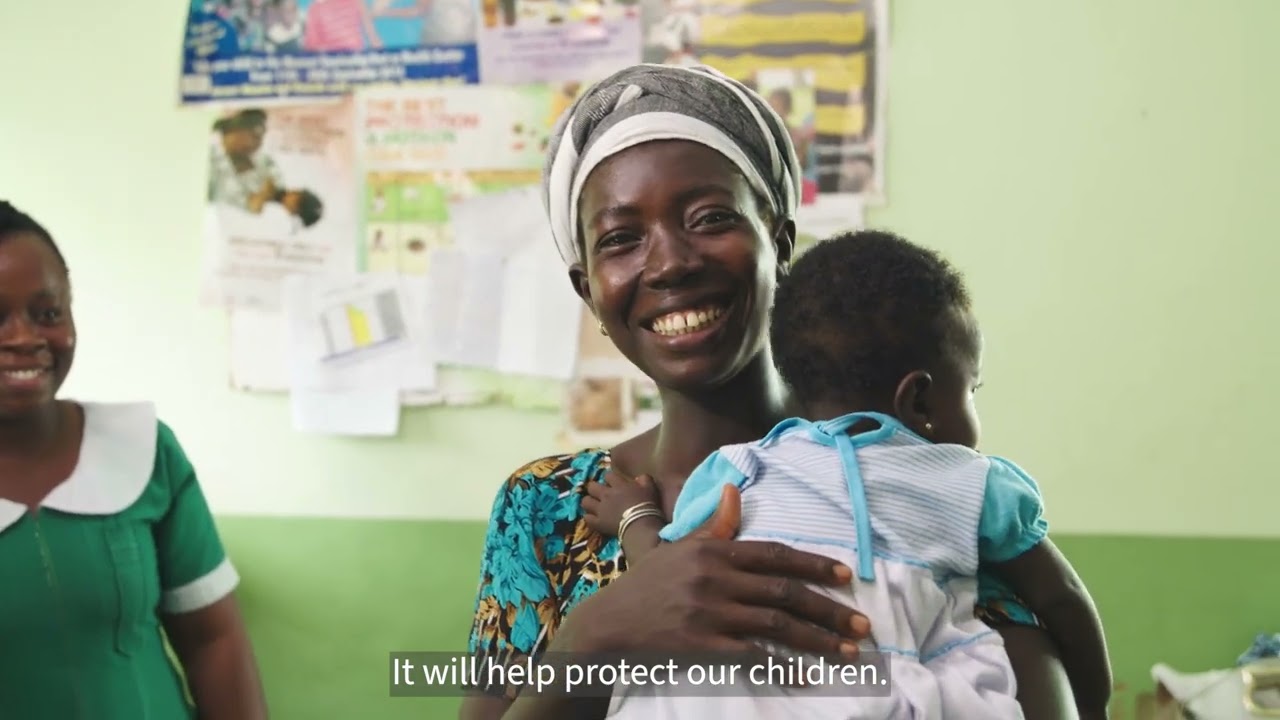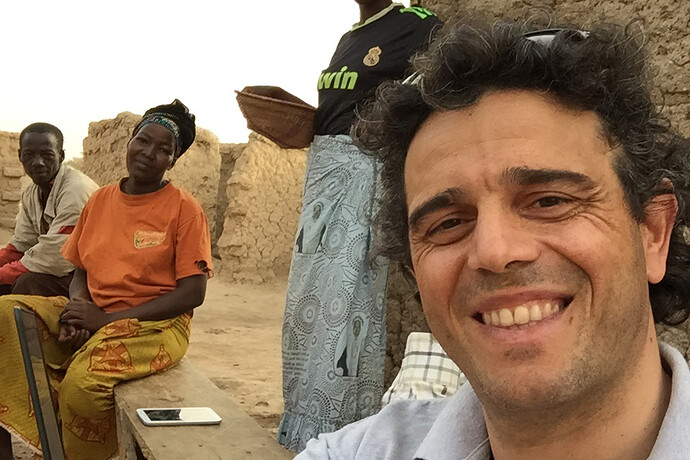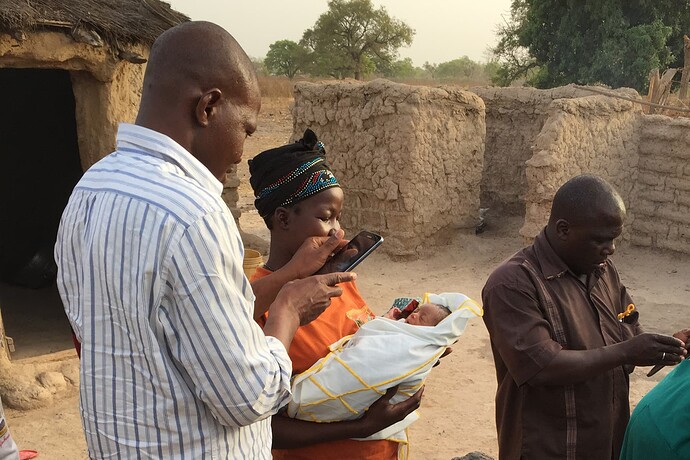On Oct 5th, WHO announced a historical decision – the broad rollout of a much-needed vaccine against malaria, a disease that kills hundreds of thousands of children in Africa each year.
The rollout of such an important vaccine is incredible news, but you might be wondering how ODK was involved. Well, it all starts on March 15th, 2015...
That morning, I joined a team from The London School of Hygiene & Tropical Medicine led by Professor Daniel Chandramohan and colleagues from the Malaria Research and Training Center in Mali. Our goal was to pilot our ODK system with a few mothers and children in Bougouni District in Mali.
The baby boy in the picture below was one of the children we collected data on. He was only a few hours old and he’s probably the youngest participant ever in an ODK project!
After the successful pilot in Bougouni, the team agreed with me that ODK was the perfect tool for this project and we started work to launch the trials in Bougouni as well as in Houndé, Burkina Faso.
I was fortunate to visit both sites, and together with the local team, built ODK forms that would meet their needs. I also helped to test and train to ensure the data collectors and thus the project would be successful.
The plan for the trials was to collect data on all households with children aged 5 - 17 months within the study areas. Every child we collected data on was associated with an ID and their caregivers were given a physical card with their picture and barcode. The data was sent to an ODK Aggregate server run by Swiss TPH.
Eligible children who were consented were allocated randomly to one of the three balanced study groups. You can learn more about the study design in this research paper.
To automate the process, we loaded the randomization list on the Aggregate server and tablets running Collect were given to pharmacists in the study sites. The pharmacists used these tablets to scan the barcode containing the child’s name and study ID to find out which group each child was in.
We ran the trials for four years, collected data on 6,000 children. The data we collected with ODK showed that the vaccine was safe and effective, and it helped convince WHO to make it broadly available.
I’m so proud to have taken part in such an important project and so grateful that ODK exists. It’s an amazing piece of software and it really does make the world a better place.


